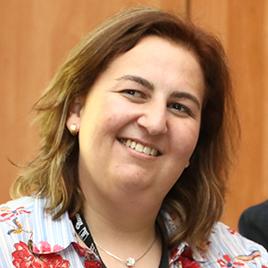Objectives and competences
Pedagogical objectives:
The curricular unit Nutritional Assessment has as main objective the acquisition of fundamental knowledge about nutritional risk and nutritional status assessments, in individuals and in populations.
Expected results:
- to understand the importance of the knowledge about the nutritional status of an individual;
- to develop capabilities of planning, implementation and assessment of nutritional status and to develop analytical skills.
Teaching Methodologies
The unit is organized in expository lectures that illustrate the programmatic contents using PowerPoint presentations and scientific papers for discussion. In practical lectures, students will be guided to participate in a dynamic and active way and to learn the technical skills described as objectives of the unit, using case studies and exercise sheets.
Syllabus
Theoretical sessions:
- Introduction to Nutritional Assessment
- Definitions in nutritional assessment
- Protein and energy balance
- Body composition concept
- Malnutrition diagnosis – screening and nutritional assessment
- Malnutrition epidemiology – undernutrition and obesity
- Anthropometry – measure techniques:
- Anatomic location of measures, equipment and measure units, techniques and results interpretation
- Weight, height, skinfolds, circumferences, bioimpedance
- Screening and nutritional assessment scales
- Dietary intake assessment
- Methodology – validity, advantages and disadvantages
- Food intake assessment methods at national, family and individual levels
- Food composition assessment
- Nutritional status assessment by physical examination – clinical signs
- Laboratorial parameters in nutritional assessment
Practical sessions:
In practical sessions, using a “hands on” approach, it is intended that students gain knowledge and skills in nutritional assessment.




